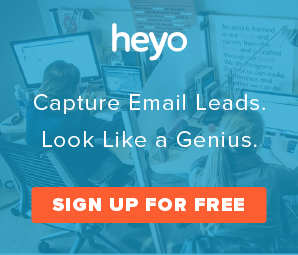Do You Know the Hidden Source of Influence?
May 28, 2013 | By Dennis Yu | 9 Comments">9 Comments
My Klout score of 74 is the same as @marismith and higher than @charleneli, @petecashmore, @jasonfalls, and @jessestay.
All that really means is that the system is flawed, since these folks have way more influence than I do…

Remember when Warren Buffett had a 40 Klout score?

I love the “idea” of measuring influence, just not how current tools attempt to quantify it.
After all, if a social tool could predict the future or give you 10,000 fans overnight wouldn’t you buy it?
The reality is that you can’t buy influence– you must earn it.

The folks who get a lot of social buzz succeed in doing so not because they’re tweeting incessantly all day.
It’s because they’re already well-known. Famous people can talk about the pizza they just ate and get a hundred thousand likes.
For the 99% of us that aren’t Brad Pitt or Barack Obama, that means we have to build our reputation FIRST– before we go nutty spamming people on social channels trying to get attention.
There’s a professional speaker’s training program, where they list how Tony Robbins, George Bush, and Colin Powell get $150,000 per speaking appearance. Not bad for 50 minutes of talking.
But it’s not because they learned how to be great public speakers and enrolled in Toastmasters.
They did something special and hung around those who could make them better people.
Those who know don’t say, and those who say, don’t know
So find the people who have the most knowledge and become a student of their game.

Hint: it’s not the loudest people.
I learned so much about B2B lead gen by watching Jon Miller and Jason Miller of Marketo.
As an unexpected side benefit, they became a client, invited us to speak at their conference, and drove us business by being a great case study.
There is nobody as awesome or as positive a force in live webinars as Nathan Latka.
So I’ve been absorbing his sales technique– and even that of his mom.
My undergrad mentor was Al Casey, former CEO of American Airlines, who got me a plum job at American Airlines.
He wasn’t on Facebook, twitter, or Klout, but the man had influence that most of us could only dream of.
Mari Smith, Mark Williams, Lisa Buyer, Ted Rubin, the list goes on…
So next time you see something like this graphic below, claiming to be the “standard for influence”, consider the true influence you hold.

Your turn: Who are YOUR real influencers?
Who are the people that lift you up, open doors for you, and make you a powerful person?
What can you do to activate them in a genuine way?
Who are the people that you need to get to know, so that you can be a student of their game?
Your true source of power
Klout says that 60% of my influence comes from Facebook. A few weeks ago, it said 60% of came from twitter.

But were I to estimate, I’d say that LinkedIn has generated more business for us than all these social networks combined.
And it’s not because I’m on Facebook that I get influence– it’s that I invite existing real-world friends to connect on Facebook.
It’s correlation vs causation– a first semester statistics mistake.
I find that when I wear a suit and tie, I’m more likely to attend weddings.
So I conclude that if I wear a suit and tie more often, I’ll be able to attend more weddings, right?
You have it all backwards
Most small businesses and agencies are using social channels as noisemakers.
Their megaphones look big, but have only half a watt of power.

Instead of you yelling louder, which is what most social media tools on the market do for you -consider how you can make others look good.
How about doing some favors for mentors of yours who do carry weight when they speak?
Way more valuable than a retweet from them, right?
What about seeking out the top people in your field to have coffee in person?
Way more valuable than being Facebook friends, right?
Gold mine
I’ll bet that you have a gold mine in your network that you’ve not realized that you can tap.
It’s called your most satisfied customers. Get them to spread the word by taking super good care of them.
Don’t worry too much about how often you tweet.
Dear readers– how will this knowledge affect your plans on Facebook and other social networks?

